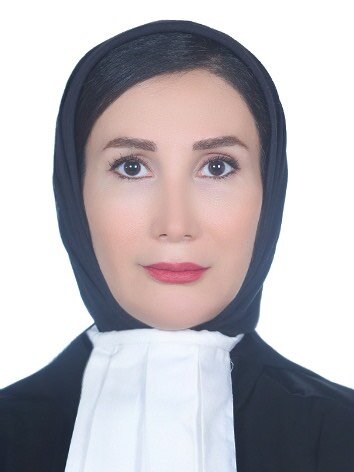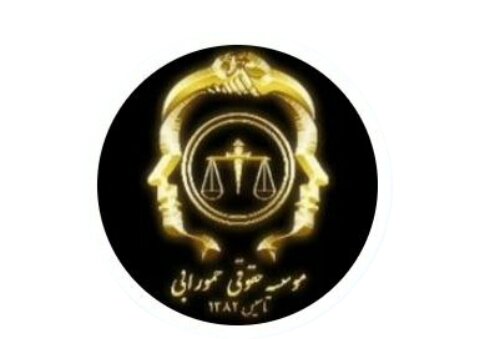Best Contract Lawyers in Tehran
Share your needs with us, get contacted by law firms.
Free. Takes 2 min.
List of the best lawyers in Tehran, Iran
About Contract Law in Tehran, Iran
Contract law in Tehran, Iran, is governed by a combination of the Iranian Civil Code and Commercial Code. Contracts play an essential role in commercial and everyday transactions. Key principles such as mutual consent, capacity, lawful object, and consideration are fundamental in Iranian contract law. The legal system in Tehran emphasizes the written form for clarity and enforceability, although oral contracts can also be valid under certain circumstances. Specific types of contracts, like those related to real estate and employment, may have additional regulations.
Why You May Need a Lawyer
There are numerous scenarios where you might need legal advice or representation in contract matters in Tehran. These include drafting or reviewing contracts to ensure compliance with Iranian law, resolving disputes regarding contract interpretation or performance, negotiating terms to protect your interests, pursuing litigation in case of breach, and advising on the implications of contractual obligations in both personal and business contexts. Legal assistance is crucial to navigate complexities and to safeguard against potential legal risks.
Local Laws Overview
The Iranian legal system has specific rules governing contract formation, performance, and enforcement. Key local laws include the necessity of clear mutual consent, lawful subject matter, and parties' capacity to enter into contracts. The Iranian Civil Code sets out general principles, while the Commercial Code provides regulations for commercial contracts. Special attention is needed for prohibited or illegal terms, as contracts contrary to public policy or Islamic principles are unenforceable. Additionally, certain contracts must adhere to specific form requirements, such as notarization, to be valid.
Frequently Asked Questions
What are the basic requirements for a contract to be valid in Tehran?
A contract in Tehran needs mutual consent, lawful subject matter, consideration, and eligible parties. Additionally, contracts under certain conditions may require written form and notarization.
Are oral contracts enforceable in Tehran?
Yes, oral contracts can be enforceable; however, they are generally harder to prove and are less preferred than written contracts, which provide clear evidence of terms agreed upon.
How can a contract be breached?
A breach occurs when one party fails to fulfill their contractual obligations, either partially or wholly, according to the agreed terms.
What remedies are available for contract breaches?
The remedies include specific performance, damages, rescission, or renegotiation of the contract terms. The exact remedy depends on the contract type and the breach's nature.
Can I include any terms in a contract?
While parties have some freedom to decide contract terms, they must not contradict public policy, morality, or Islamic principles, as such terms render a contract unenforceable.
What should I do if I don’t understand my contract terms?
If you don’t understand your contract, consult an experienced attorney to clarify the terms and ensure your rights and obligations are protected.
Is notarization required for contracts in Tehran?
Notarization is necessary for certain contracts, particularly those involving real estate or significant value transactions, to be legally enforceable.
How do I resolve a contract dispute?
Contract disputes can be resolved through negotiation, mediation, arbitration, or court litigation. Seeking legal advice early can help determine the best course of action.
Can I modify a contract after it’s been signed?
Yes, contracts can be modified if all parties consent to the changes. It is advisable to document any modifications in writing.
What role does the Iranian Commercial Code play in contracts?
The Iranian Commercial Code outlines specific regulations for commercial transactions and contracts, providing guidelines for businesses and trade-related agreements.
Additional Resources
For further assistance, you may contact the Iranian Ministry of Justice, the Tehran Iranian Bar Association, or seek guidance from legal aid organizations specializing in contract law. These entities can provide valuable information and help connect you with qualified legal professionals.
Next Steps
If you need legal assistance with a contract issue in Tehran, start by consulting with a reputable lawyer specializing in contract law. Gather all relevant documents and information related to your case. Schedule a consultation to discuss your situation and explore your legal options. Consider ongoing legal support to ensure contract compliance and protect your interests in future transactions.
Lawzana helps you find the best lawyers and law firms in Tehran through a curated and pre-screened list of qualified legal professionals. Our platform offers rankings and detailed profiles of attorneys and law firms, allowing you to compare based on practice areas, including Contract, experience, and client feedback.
Each profile includes a description of the firm's areas of practice, client reviews, team members and partners, year of establishment, spoken languages, office locations, contact information, social media presence, and any published articles or resources. Most firms on our platform speak English and are experienced in both local and international legal matters.
Get a quote from top-rated law firms in Tehran, Iran — quickly, securely, and without unnecessary hassle.
Disclaimer:
The information provided on this page is for general informational purposes only and does not constitute legal advice. While we strive to ensure the accuracy and relevance of the content, legal information may change over time, and interpretations of the law can vary. You should always consult with a qualified legal professional for advice specific to your situation.
We disclaim all liability for actions taken or not taken based on the content of this page. If you believe any information is incorrect or outdated, please contact us, and we will review and update it where appropriate.

















